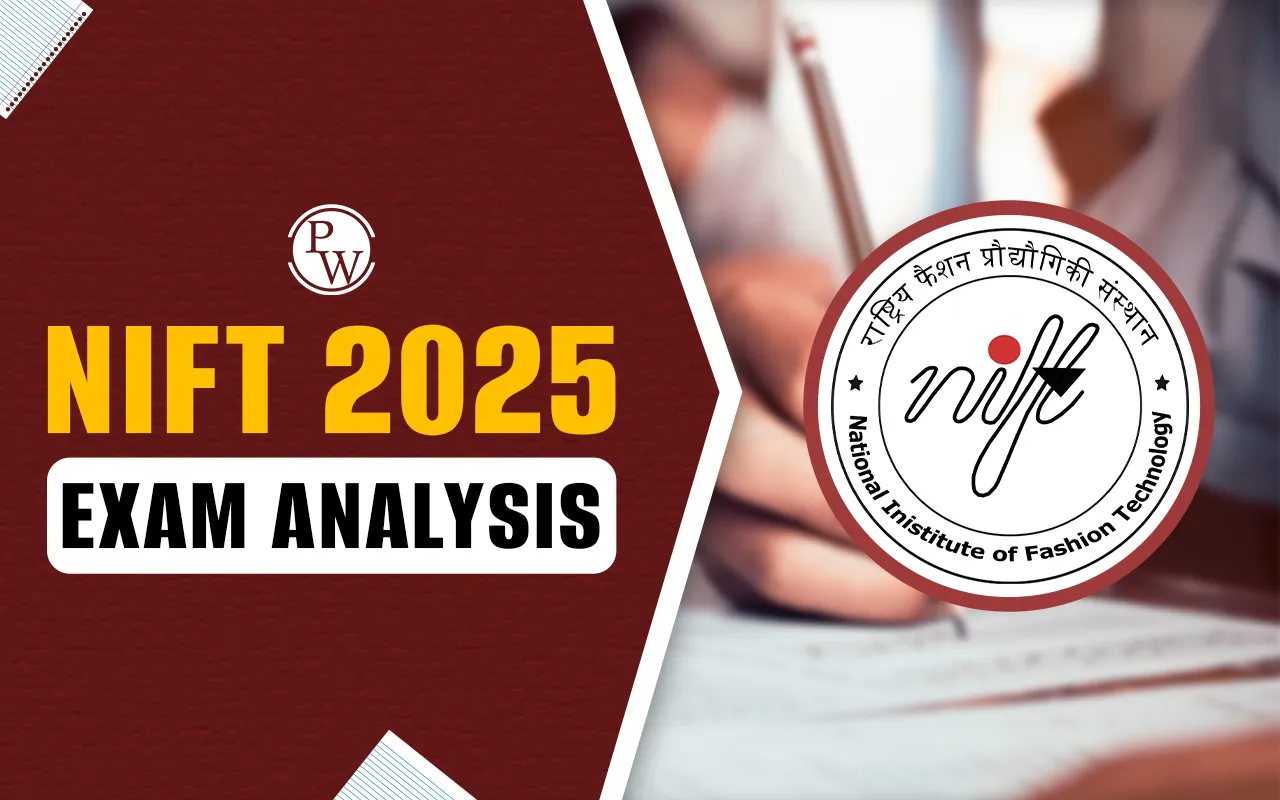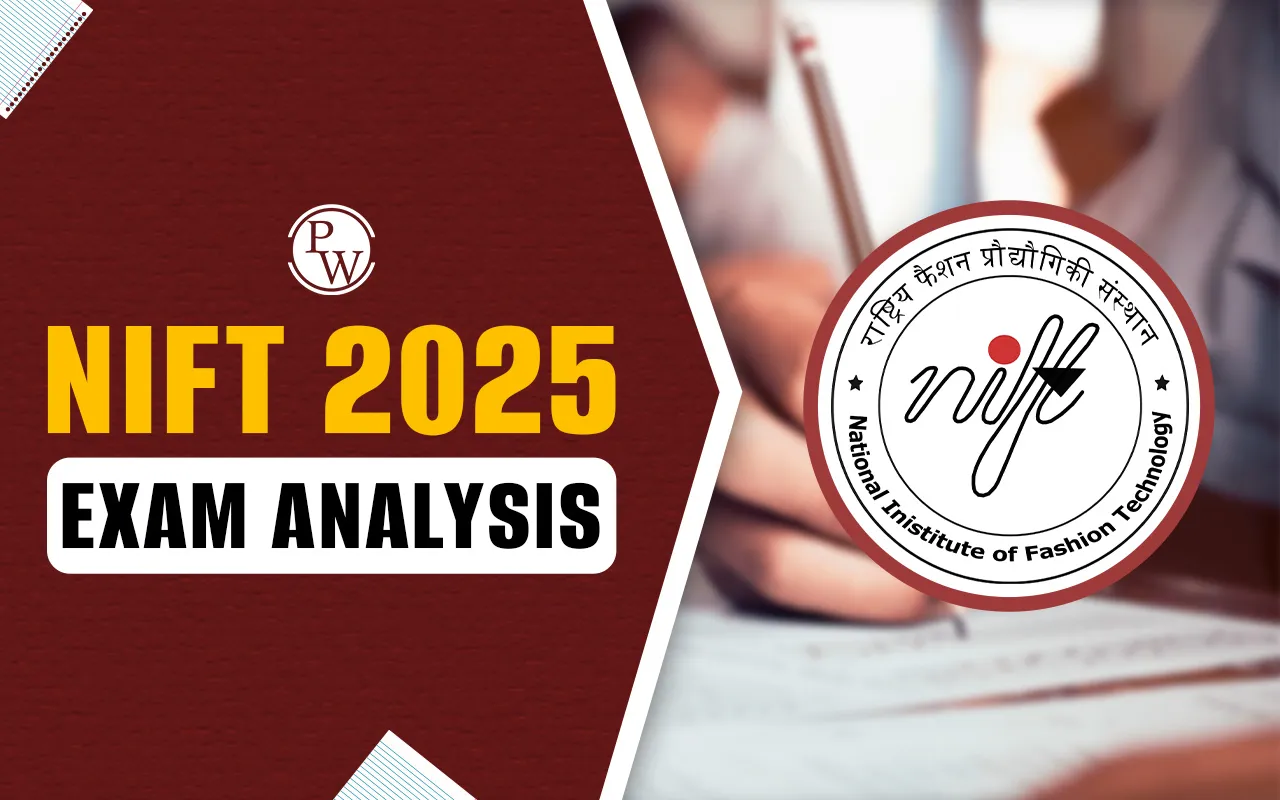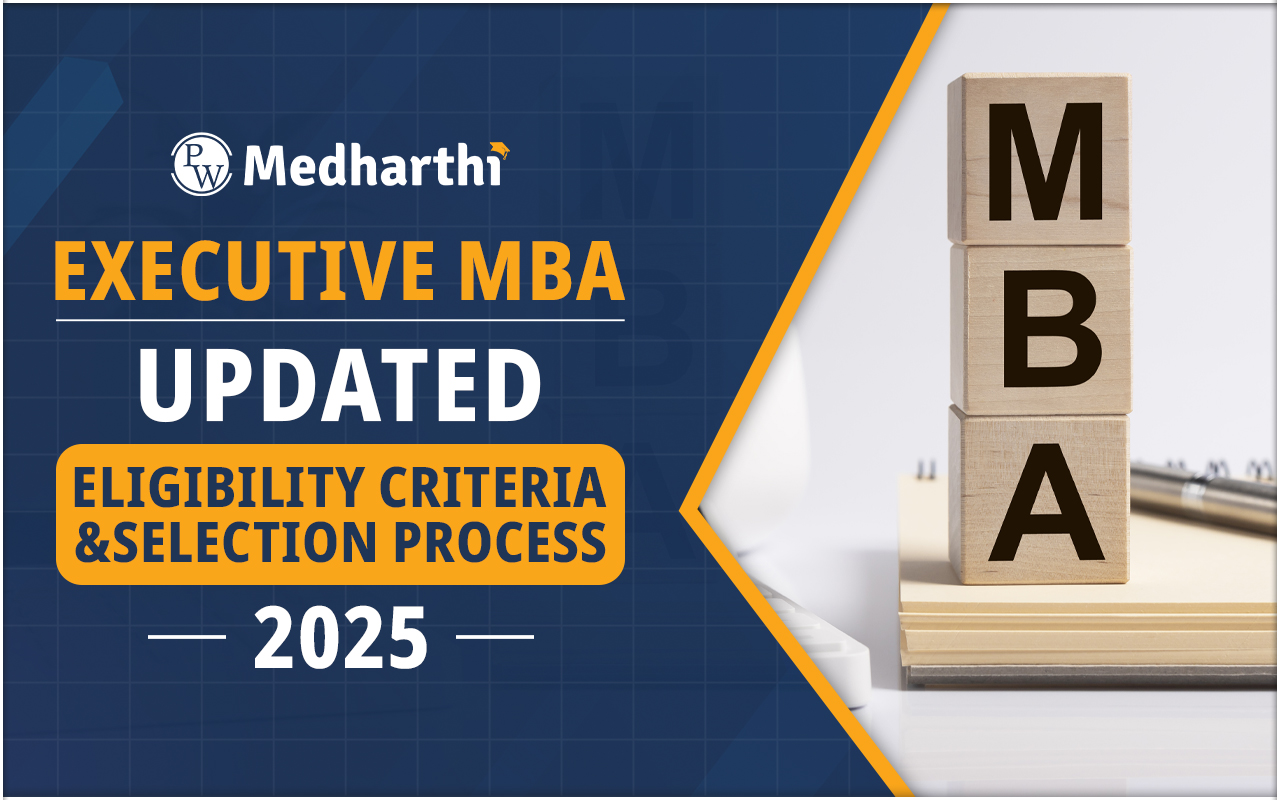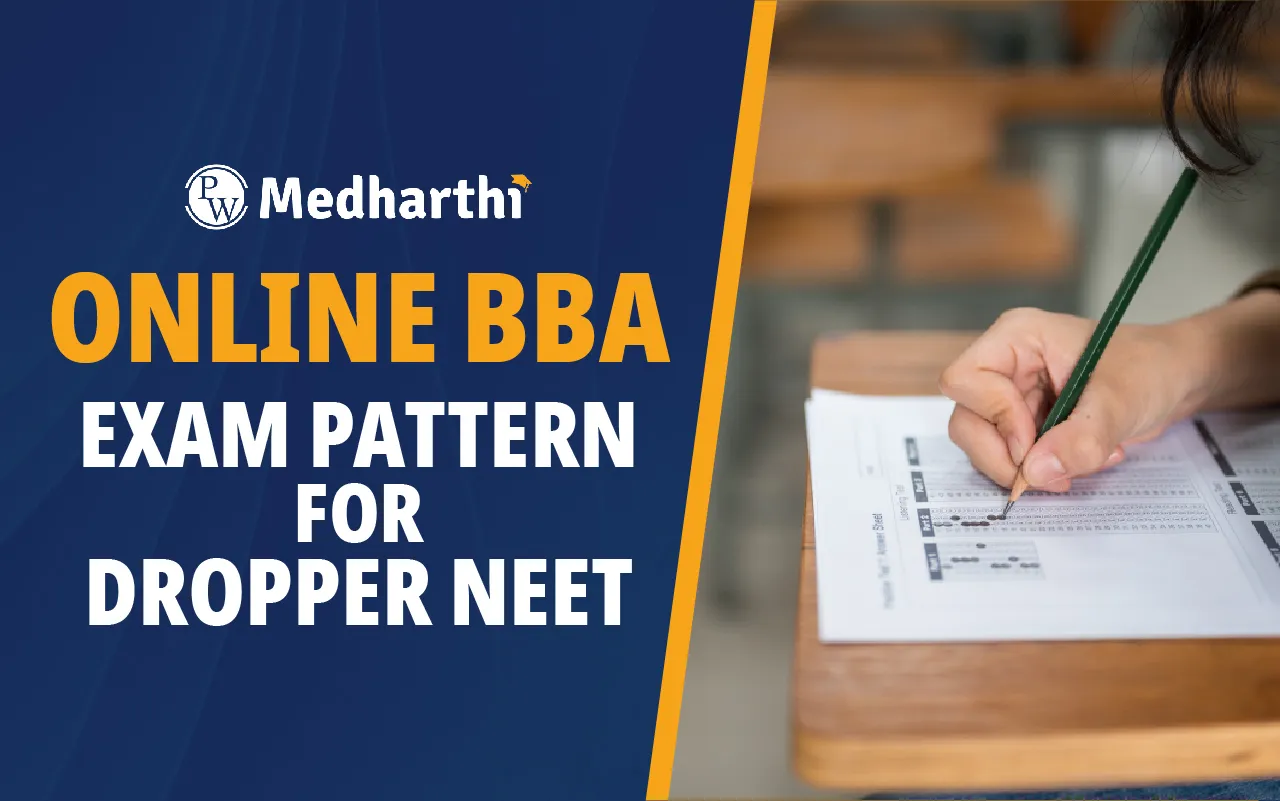

NIFT 2025 Exam Analysis: The National Institute of Fashion Technology (NIFT) conducted its entrance examination for the 2025 academic year on February 9, 2025. This pivotal assessment serves as the gateway for aspirants seeking admission into various undergraduate and postgraduate programs in fashion and design across NIFT's campuses nationwide. This comprehensive analysis delves into the exam's structure, evaluates its difficulty level, provides insights into candidate experiences, and outlines the subsequent steps in the admission process.
NIFT 2025 Exam Analysis & Structure
The NIFT 2025 entrance exam serves as a crucial gateway for aspiring fashion and design students, assessing their creativity, analytical ability, and general awareness. This analysis covers the exam structure, difficulty level, and key insights to help candidates understand their performance.
NIFT 2025 Exam Structure
The NIFT 2025 entrance examination was designed to assess candidates' creative aptitude, analytical skills, and general awareness through a structured evaluation process. The NIFT 2025 entrance examination comprised two primary tests:
-
General Ability Test (GAT): This test evaluates candidates' proficiency in areas such as quantitative ability, communication skills, English comprehension, analytical ability, and general knowledge.
-
Creative Ability Test (CAT): Designed to assess a candidate's intuitive ability, power of observation, innovation in concept development, and design skills. The examination schedule was as follows:
|
NIFT 2025 Exam Structure |
||
|
Program |
Test |
Timing |
|
B.Des |
CAT |
9:30 AM - 11:30 AM |
|
B.Des |
GAT |
1:30 PM - 4:30 PM |
|
M.Des |
CAT |
9:30 AM - 11:30 AM |
|
M.Des |
GAT |
1:30 PM - 4:30 PM |
|
B.FTech |
GAT |
1:30 PM - 4:30 PM |
|
M.FTech |
GAT |
1:30 PM - 4:30 PM |
|
MFM |
GAT |
1:30 PM - 4:30 PM |
NIFT 2025 Exam Analysis
The NIFT 2025 Exam Analysis provides a detailed review of the exam's difficulty level, question patterns, and candidate feedback. This analysis helps aspirants understand the test structure, assess their performance, and prepare effectively for the next stages of admission.
General Ability Test (GAT)
The GAT was conducted in the morning session and was mandatory for all candidates. Feedback from examinees indicates that the overall difficulty level was moderate. Sectional analysis reveals:
-
Quantitative Ability: Questions were predominantly based on Class 10 mathematics, with topics like probability receiving significant emphasis.
-
Communication Ability and English Comprehension: This section featured two comprehension passages, along with questions on synonyms, antonyms, and general grammar.
-
Analytical Ability and Logical Reasoning: Candidates found this section to be relatively straightforward.
-
General Knowledge and Current Affairs: This segment was perceived as more challenging, with questions focusing on subjects such as handloom, fabrics, embroidery techniques, and notable authors.
Creative Ability Test (CAT)
The CAT took place in the afternoon session and was required for B.Des and M.Des applicants. Candidates reported that the CAT was easy to moderately difficult. The test included tasks such as designing virtual spaces for webinars and creating new emojis to express specific phrases.
Important Dates and Admission Process
The Important Dates and Admission Process for NIFT 2025 outline the key milestones candidates must follow, from the release of answer keys to final seat allocation. Staying updated with these dates ensures a smooth and timely progression through the admission process. Following the entrance examination, the admission process adheres to the following timeline:
|
Important Dates and Admission Process |
|
|
Event |
Date |
|
Release of Answer Key |
February 15, 2025 |
|
Window to Challenge Answer Key |
February 15-17, 2025 |
|
Declaration of Written Test Results |
March 2025 |
|
Situation Test/Personal Interview |
April 2025 |
|
Final Results Announcement |
Last week of April 2025 |
|
Seat Allocation |
May-June 2025 |
Candidates who qualify in the written tests will be invited to participate in the Situation Test (for B.Des applicants) or Personal Interview (for M.Des applicants). These assessments are designed to further evaluate candidates' practical skills and suitability for the respective programs.
| Online Degree Important Links | |
| Online MCA Programs in India | Online BCom Course |
| Online MCA Course | Online Degree Programs |
| Regular Degree Vs Distance Degree | BA Online Registration |
FAQs on NIFT 2025 Exam Analysis
What was the overall difficulty level of the NIFT 2025 exam?
Which section was the toughest in the NIFT 2025 exam?
What was the pattern of the NIFT 2025 exam?
Was there any change in the exam pattern for NIFT 2025?
How was the difficulty level of the Quantitative Ability section in GAT?













